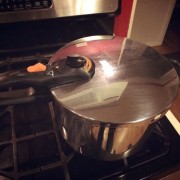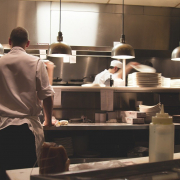Tips for Starting a Small Food Business
There are a few important aspects that you need to consider when it comes to handling, storing and serving food when you’re starting up your first-ever small food business. This is the case whether you have your heart set on opening a café, restaurant or humble kiosk.

EU law and legislation concerning food standards should be followed in order to keep your customers safe and free from any allergens found within the food that may have a detrimental effect on them. To help you understand these standards, Erudus, which specializes in storing and sharing food labeling information within a data pool for customers’ benefit, has compiled this handy start-up guide:
Understanding food contamination
Cross-contamination can occur whenever food like raw eggs, meat, and poultry come into contact with cooked foods. The most likely time for cross-contamination to occur is when food drips onto either a utensil, a food product or a clean surface while you’re preparing meals.
However, be aware that cross-contamination can be spread through the hands — not to mention bacteria. Be sure to bear in mind the EU major 14 allergens list too, as some of your customers are likely to have allergens and problems can be caused due to allergen cross-contamination while preparing food.
To avoid the risk of cross-contamination, ask yourself the following questions whenever you prepare food:
- Are raw meat and poultry being kept away from ready-to-eat foods at all times? This even includes ready-to-eat food’s packaging material.
- Have you thoroughly cleaned your hands after handling every piece of raw food produce?
- Have both work surfaces and equipment been cleaned and washed before you handle food?
- Have allergens been prepared and stored in different parts of a kitchen?
- Is raw produce being kept underneath ready-to-eat food when placed in a fridge? Even better, is raw produce in a completely different fridge to ready-to-eat food?
- Has every new member of staff been educated about allergen contamination, cross-contamination, and food hygiene before they begin their work?
Tracing your food
Records of food, food substances and food-producing animals that have helped towards supplying consumers with food need to be kept by all food businesses and operators. This is stipulated by Article 18 of The General Food Law Regulation (EC) 178/2002. Will you be supplying other businesses with produce? If so, you’ll also be required to keep a record of when and where these supplies have been made in case necessary authorities ever request it.
Assurance of supplier reliability
Supplier reliability is important, as it will affect the quality and safety of the food that you are planning to serve to customers. Therefore, always get clarification that all products received from a supplier are stored, processed and handled in a safe manner before it reaches your care.
You have the right to reject any food that you have been supplied if your suspicions are raised, with this being the case whether you feel chilled or frozen foods aren’t cold enough, that have arrived with damaged packaging or are different to what was specified when you made the order. Don’t forget to get in touch with your supplier immediately in these scenarios.
Presenting your food
You should never mislead consumers through any food that you sell. As defined in Article 16 of The General Food Law Regulation (EC) 178/2002, you must never mislead customers through the advertising, labeling or presentation of any food either. As a result, ensure food labels and packaging clearly set out the product that you have on sale and also contains any allergen information.
Register your business
No matter if you will be running your food business from home or have set up your own premises, you will need to inform the environmental health service at your local authority at least 28 days before you open. This is totally free of charge to do.








